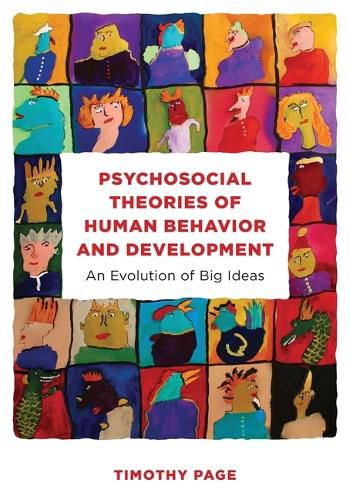Readings Newsletter
Become a Readings Member to make your shopping experience even easier.
Sign in or sign up for free!
You’re not far away from qualifying for FREE standard shipping within Australia
You’ve qualified for FREE standard shipping within Australia
The cart is loading…






This is a book about the major psychosocial theories of human development that were created in the 20th century, drawing from the diverse disciplines of developmental psychology, psychiatry, cognitive science, social psychology, sociology, ethology, and neuroscience. A central focus concerns the components of psychological and social development that motivate and influence human behavior over the lifespan. The evolution of the major ideas over time, their integration, and the ways in which their emergence was shaped by their mutual influences is emphasized throughout. Several integrative themes are used to provide linkages and contexts for the emergence of the theories, particularly the social influences on scientific discoveries, the integrative theoretical framework from the National Research Council, referred to as the transactional-ecological model, and an emphasis on the historical evolution of the sources of knowledge on which the theories were based. A major goal of the book, therefore, is to teach, in addition to the major concepts of growth and development, the historical scientific and social processes by which these organizations of concepts came into being. Without an integrative discussion such as this, students can miss out on important opportunities for more critical analysis and synthesis of the ideas.
$9.00 standard shipping within Australia
FREE standard shipping within Australia for orders over $100.00
Express & International shipping calculated at checkout
This is a book about the major psychosocial theories of human development that were created in the 20th century, drawing from the diverse disciplines of developmental psychology, psychiatry, cognitive science, social psychology, sociology, ethology, and neuroscience. A central focus concerns the components of psychological and social development that motivate and influence human behavior over the lifespan. The evolution of the major ideas over time, their integration, and the ways in which their emergence was shaped by their mutual influences is emphasized throughout. Several integrative themes are used to provide linkages and contexts for the emergence of the theories, particularly the social influences on scientific discoveries, the integrative theoretical framework from the National Research Council, referred to as the transactional-ecological model, and an emphasis on the historical evolution of the sources of knowledge on which the theories were based. A major goal of the book, therefore, is to teach, in addition to the major concepts of growth and development, the historical scientific and social processes by which these organizations of concepts came into being. Without an integrative discussion such as this, students can miss out on important opportunities for more critical analysis and synthesis of the ideas.